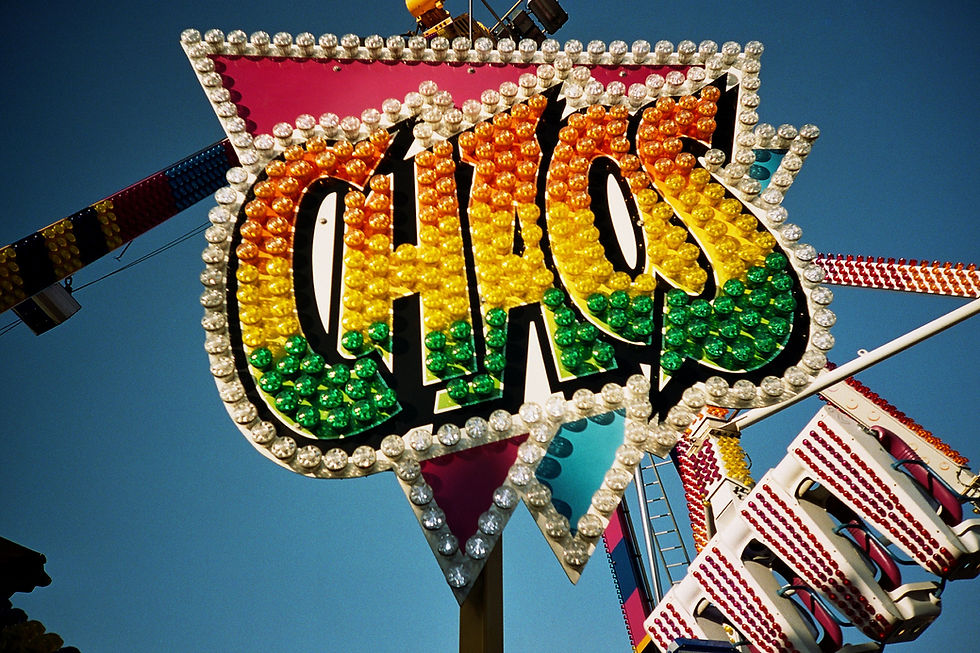When Chaos Feels Like Home: Interview with Scary Mommy
- Oct 2, 2025
- 3 min read

Chaos has a curious gravitational pull, especially for those whose nervous systems have long ago learned that disorder feels oddly familiar. In a recent article by Scary Mommy entitled "Why You Keep Inviting Chaos Into Your Life (Even If You Don’t Want To)", the founder and clinical director of Lexington Park Psychotherapy, Dr. Jordan Conrad, discusses why so many people keep inviting turbulence into their lives—even when every cell screams for calm.
Anxiety plays a starring role in the chaos cycle. When the nervous system is chronically wired for stress, small disturbances become existential crises. Jordan notes that dysregulated emotions, often caused by trauma, often push people into chaotic patterns without awareness: “People with dysregulated emotions often generate chaotic moments and have no idea how they got that way.” Suddenly, a forgotten email, a late dinner, or a tweak in schedule becomes “momentous,” because the system is primed for elevation.
Love Like a Hurricane
Relationships tend to mirror these inner currents. The same patterns learned in childhood resurface between partners: overreactions, conflict spirals, urgent fixes. Chaos becomes a language of connection—even if unhealthy. Jordan points out that chaotic energy can momentarily sharpen focus, making life feel dramatic, meaningful, or alive: “The urgency of chaotic situations sharpens people’s focus to a single point and gives the moment clear purpose and direction.” If that sounds unbelievable, just think of your favorite movies. When something is "on the line", even if it is your own relationship, things can feel really real.
“Actually, we are all familiar with that feeling because it happens in movies and TV all the time. Running to the airport to tell someone you love them before they get on a flight? Chaos. Being totally unprepared for the presentation in front of the board of directors and somehow pulling it off? Chaos. Think of Bridesmaids or Love Actually or 10 Things I Hate About You: all chaos. It can be in those moments that people feel really loved.”
But the price is emotional exhaustion and relational fragility when the turbulence inevitably subsides.
Overworked, Overwhelmed, and Wired for Drama
Overworking is one of the most socially accepted ways to invite chaos in through the front door—often with a gold star attached. Hustle is praised, exhaustion is glamorized, and being “busy” becomes a personality trait.
“The pressure to be productive and efficient that so many people, especially in the U.S., feel these days causes them to pack their schedules so that there is no margin for error. So, at least some of the problem is not that people are looking for chaotic situations, but that their desire to do everything — to go on trips and finish that proposal and apply for that new job and be a good parent and do that self-care regimen everyone is talking about and make food and talk to friends and be there for family and clean up and call your insurance and figure out what is going wrong with your phone plan — is making things chaotic."
But as Jordan explains, chronic overworking is rarely about productivity alone; it’s often a coping mechanism rooted in anxiety and a fear of stillness. When the to-do list never ends, and rest feels like laziness, the nervous system stays in overdrive, mistaking constant motion for control. The result? A slow-building storm of burnout, irritability, and disconnection that touches every area of life—from relationships to parenting to personal well-being. In trying to outrun discomfort, many end up running straight into more chaos.

We can make things feel less chaotic, together. Get in touch for a free consultation today


